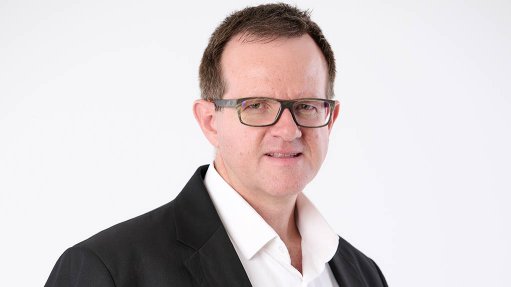Accelerating Africa's future – how early career programmes can drive growth
This article has been supplied.
By: Yewande Ayowole-Oso - Talent Leader, Anglophone Africa at Schneider Electric
Marrying theory with practice, a challenge as old as the concept of employment itself. The transition from education to the workplace is often fraught with obstacles with many newly minted employees feeling ill-prepared for what lies ahead.
Africa, with the youngest median population on the planet, undoubtedly faces the above. It’s a double-edged sword, with the youthful demographic presenting the continent with both opportunity and challenge. While a large young population can drive economic growth, inadequate preparation for the job market can lead to high unemployment rates and economic stagnation.
In many African countries, the transition from education to employment is fraught with difficulties. Graduates often find themselves unprepared for the practical demands of the workplace, leading to a scenario where vacancies exist, but there is a lack of suitably skilled candidates.
This is evident in countries like South Africa, where the overall unemployment rate stands at 32.9%, and similar trends are observed in other regions. Telling, is the unemployment rate, rate of those that hold tertiary (20.6%) or graduate qualifications (10. 6%).
The importance of early career programmes
Early career programmes provide an answer, bridging the gap between the skills youth acquire (through formal education) and those required in the workforce, thus strengthening economic productivity and fostering regional growth.
To address this issue, early career programmes are designed to provide the necessary training and mentorship that align with market demands.
At the top of the early career programmes heap should be technical skills training which drive industrial growth and innovation. Here, TVETs and other technical tertiary institutions play an important role in bridging the gap.
By partnering with industry leaders, these institutions can provide current and very relevant training in areas such as renewable energy, information technology, and engineering. These programmes will ensure the curriculum remains germane and graduates are equipped with the latest skills.
While technical skills are important, soft skills such as communication, problem-solving, and teamwork is equally vital. Early career programmes often incorporate soft skills training to ensure that graduates can effectively navigate the workplace environment and contribute to their organisations.
Entrepreneurship is a key driver of economic growth and job creation. Early career programmes that offer entrepreneurship training and support can empower young people to start their own businesses. This not only creates employment opportunities but also fosters innovation and economic diversification.
Also, through mentorship programmes, experienced professionals can provide valuable guidance, helping young people navigate their career paths and make informed decisions. Mentorship programmes can also offer networking opportunities, connecting young people with potential employers and industry leaders.
In the Schneider Electric Anglophone Africa (English-speaking) cluster, we offer variety of early career programmes aimed at nurturing talent and fostering innovation:
- Apprenticeships, internships, and graduate opportunities which provide hands-on experience and exposure to various aspects of the company.
- Training and development which provide the platform for young professionals to advance their careers by placing them in a dynamic and collaborative environment that supports their learning, development, and well-being.
- Partnerships with various tertiary institutions across South Africa, West and East Africa to accelerate access to education and practical knowledge.
- Mentorship, here participants can connect with experienced industry professionals who provide guidance, support, and insights into career development.
Article Enquiry
Email Article
Save Article
Feedback
To advertise email advertising@creamermedia.co.za or click here
Press Office
Announcements
What's On
Subscribe to improve your user experience...
Option 1 (equivalent of R125 a month):
Receive a weekly copy of Creamer Media's Engineering News & Mining Weekly magazine
(print copy for those in South Africa and e-magazine for those outside of South Africa)
Receive daily email newsletters
Access to full search results
Access archive of magazine back copies
Access to Projects in Progress
Access to ONE Research Report of your choice in PDF format
Option 2 (equivalent of R375 a month):
All benefits from Option 1
PLUS
Access to Creamer Media's Research Channel Africa for ALL Research Reports, in PDF format, on various industrial and mining sectors
including Electricity; Water; Energy Transition; Hydrogen; Roads, Rail and Ports; Coal; Gold; Platinum; Battery Metals; etc.
Already a subscriber?
Forgotten your password?
Receive weekly copy of Creamer Media's Engineering News & Mining Weekly magazine (print copy for those in South Africa and e-magazine for those outside of South Africa)
➕
Recieve daily email newsletters
➕
Access to full search results
➕
Access archive of magazine back copies
➕
Access to Projects in Progress
➕
Access to ONE Research Report of your choice in PDF format
RESEARCH CHANNEL AFRICA
R4500 (equivalent of R375 a month)
SUBSCRIBEAll benefits from Option 1
➕
Access to Creamer Media's Research Channel Africa for ALL Research Reports on various industrial and mining sectors, in PDF format, including on:
Electricity
➕
Water
➕
Energy Transition
➕
Hydrogen
➕
Roads, Rail and Ports
➕
Coal
➕
Gold
➕
Platinum
➕
Battery Metals
➕
etc.
Receive all benefits from Option 1 or Option 2 delivered to numerous people at your company
➕
Multiple User names and Passwords for simultaneous log-ins
➕
Intranet integration access to all in your organisation




















